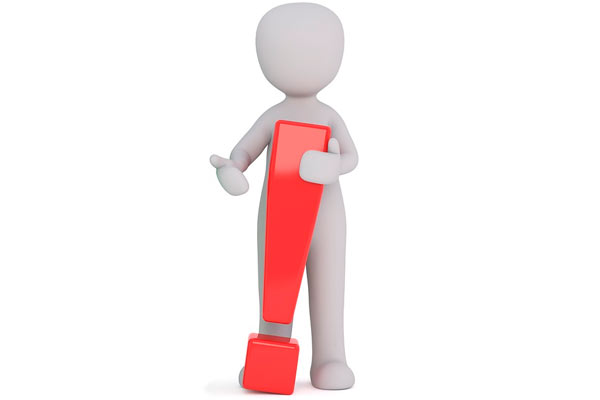
All iLive content is medically reviewed or fact checked to ensure as much factual accuracy as possible.
We have strict sourcing guidelines and only link to reputable media sites, academic research institutions and, whenever possible, medically peer reviewed studies. Note that the numbers in parentheses ([1], [2], etc.) are clickable links to these studies.
If you feel that any of our content is inaccurate, out-of-date, or otherwise questionable, please select it and press Ctrl + Enter.
In the 2014-2015 school year, schoolchildren will be taught about the harms of alcohol and drugs
Last reviewed: 01.07.2025
The Ministry of Health plans to introduce preventive talks about the dangers of alcohol and drugs into the school curriculum. The program is designed for grades 1-11, in addition to talking with students, it is also planned to work with teachers and parents. During the lessons, students will learn how many types of drugs are encountered and what their use leads to. Children will also learn about HIV and learn to resist bad influences. The program is planned to be launched in the 2014-2015 school year.

The program was developed by specialists from the Ukrainian Medical and Monitoring Center for Alcohol and Drugs and the Academy of Pedagogical Sciences. The authors believe that the program will increase the level of self-defense of students in situations where there is a risk of alcohol, drug use, etc. The project began to be developed in 2009 and has already been tested in Ukrainian schools.
The program is designed for four courses for students in grades 1–4 and eight lessons for grades 5–11. The class teacher will conduct the lectures. If desired, specialists can be invited to the lesson, for example, a narcologist. It is also planned to involve trainers from among students starting from the seventh grade in teaching. Several teaching aids were developed especially for teachers, and 11 workbooks (one for each year of study) for students.
Children will be introduced to the consequences of alcohol and drug use in a form appropriate to their age group. For primary school students, everything will be presented in a playful manner; lessons should be fun and interactive. Children will be explained that alcohol, cigarettes, and aerosols are dangerous to health. When “friends” offer a cigarette or vodka, this situation is dangerous and you need to have enough strength to resist the bad influence. Children will also learn that picking up cigarette butts, needles, and syringes on the street is dangerous to life.
From the fifth grade, students learn that drug use leads to the loss of money, friends, relatives, the destruction of plans for the future, a strong deterioration in health, and then death. Children learn that marijuana is called "grass" or "plan" among young people, its use leads to deterioration in health and chronic diseases. Experts believe that it is from the 5th - 6th grade that children need to be fully informed, otherwise the "reverse effect" will work and children will become interested in what is so special about these drugs. From about 13 years old, teenagers already encounter narcotic substances to one degree or another.
More than 25% of schoolchildren over the age of 15 have already used drugs. The most common among young people are hashish and marijuana. Children try drugs for the first time at the age of 13-16 simply out of interest, more than 12% of school-age children have smoked marijuana. During the preparation of the program, specialists found out that 32% of parents categorically do not agree with talking to their children about drugs and alcohol. But avoiding a conversation about this is wrong, it is impossible to protect a child without informing him as much as possible. After all, almost everyone who tries drugs does so out of curiosity, without thinking about what this will lead to.
Starting from the eighth grade, students will be told in more detail about the types of drugs: hallucinogens, opiates, cannabinoids, stimulants, solvents, depressants. The authors plan to tell children about the consequences of bad company starting from the ninth grade, and in the eleventh grade to tell about HIV and AIDS, as well as how these diseases are contracted.
It is supposed to conduct training in an unusual form, using thematic exercises, role-playing games, competition tasks, discussions. The methodological materials for teachers contain special scenarios for conducting lessons. Teachers are suggested to conduct lessons, discussing various questions about drugs and alcohol, for example, whether alcohol improves mood or how to determine by a person that he uses drugs. Classes should be conducted in a tense mode, the break between lessons should not be more than two days.
It is also necessary to raise the level of awareness among adults. The manual for teachers contains information on what to do if a loved one is addicted to drugs. Special home projects have also been prepared for teachers, among which is a table on the amount of alcohol consumed per week, which must be filled out.
The Ministry of Education approved the new program, after the examination by the scientific and methodological council and the commission on the basics of health, positive conclusions were made. The program was recommended for use in the educational process. The program is not mandatory for study, it can be studied at the request of the school administration and parents.
Experts believe that studying the program is relevant in modern conditions. Children are exposed to alcohol advertising every day, they see drunks, smokers, etc. on the street. If you keep silent about the problem and pretend that it does not concern you, the consequences can be very serious, because we are talking about the healthy future of our children.

 [
[